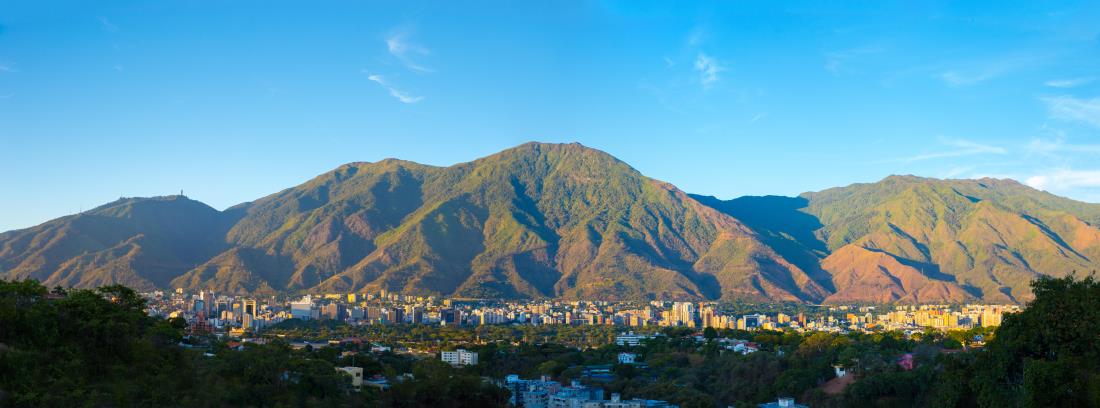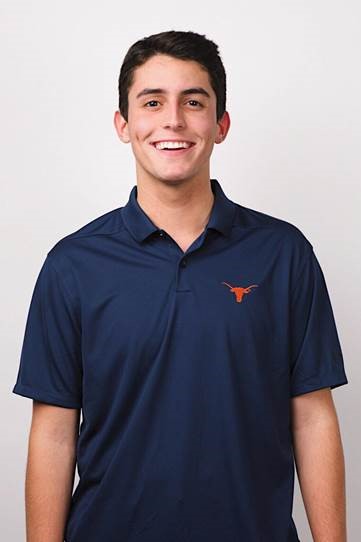Santiago Castellanos Ojeda shares his experience of leaving Venezuela to study in the United States.

“We owe empathy to one another. That’s what humans do. Humble yourself by acknowledging your privileged position and offer your empathy to those who need it. You might need that same empathy one day and I’m sure you wouldn’t want people to just turn a blind eye.”

Q&A with Santiago Castellanos Ojeda, senior at the University of Texas at Austin
In January, IIE announced that it would provide grants to 59 Venezuelan students studying at U.S. colleges and universities to help them cover educational expenses such as tuition and room and board. Due to Venezuela’s current political and economic instability, it has become increasingly difficult for Venezuelan students to pay for their education and remain enrolled in their degree programs.
The grants were made possible through IIE’s Emergency Student Fund (ESF), which supports international students studying in the United States who are facing financial hardship and are at risk of dropping out of their studies because their lives back home have been impacted by natural disaster, political unrest, or other forms of upheaval in their home countries. Since the fund was first implemented in 2010, it has awarded more than 850 emergency grants through ESF to students across the world, distributing more than $2 million in financial aid.
IIE-ESF is one component of IIE’s Student Emergency Initiatives (SEI). Through SEI, IIE provides assistance and support to deserving students who are at risk of dropping out of their education or have had their higher education interrupted as a result of natural disaster, conflict, or political unrest. Other SEI initiatives include the IIE Platform for Education in Emergencies Response, and the IIE Syria Consortium for Higher Education in Crisis.
Read on below to hear about the experience of Santiago Castellanos Ojeda, a recent ESF grant recipient from Venezuela. Santiago is a senior at the University of Texas at Austin focusing on radio, television and film.
- Why was it important for you to attend university in the United States? What can a student gain from an education abroad?
Pursuing a higher education abroad was important to me because I was aware of where my country was headed. The quality of education had already reduced significantly due to a lack of professors and resources, so I knew that I needed a quality education in order to attain the tools required to help my country in a not-too-distant future. Studying abroad also grants you a new, real perspective of the world; a perspective that allows you to become a global citizen and see, acknowledge, and care about what happens beyond the boundaries of your own country. - What obstacles did you overcome to gain admission and to enroll in your institution?
Self-doubt. I used to think that I wasn’t good enough and that being from another country and having English as my second language was going to be detrimental for my application process. However, I used those disadvantages to improve my progress rather than hinder it. Having grown up in a different environment granted me a different wealth of experience and a different, fresh perspective to offer to my institution. - What’s one thing that most people don’t realize about the situation in Venezuela?
A lot of people don’t care. Primarily because it doesn’t affect them. And I’m not saying you should lose sleep on a problem that’s not affecting you, but it’s important to read the news and keep up with everything that happens in the world. We owe empathy to one another. That’s what humans do. Humble yourself by acknowledging your privileged position and offer your empathy to those who need it. You might need that same empathy one day and I’m sure you wouldn’t want people to just turn a blind eye. - How will your degree help you to reach your academic or professional goals?
“Even though degrees won’t open every door for you, you will have a chance to open more doors with one in your hand than without one.” A professor once said that to me and it will always be engraved in my brain. My degree, something as simple as a piece of paper, will show people that I hold some level of credence and that I have the tools required to work on my field of specialty and to take the first steps towards making the contributions I want to make. - How do you hope to make a positive contribution to Venezuela?
Most people think that you have to be a politician or an engineer to make a positive contribution to Venezuela. I, however, want to focus on the root of the problem. As a storyteller, I will seek to eradicate the conformism that reigns within Venezuelans by showing them that there’s more to life beyond the boundaries of Venezuela, that they can and should strive for more. Dreams are human’s most powerful fuel, so I will follow my dreams to give them allowance to follow theirs.